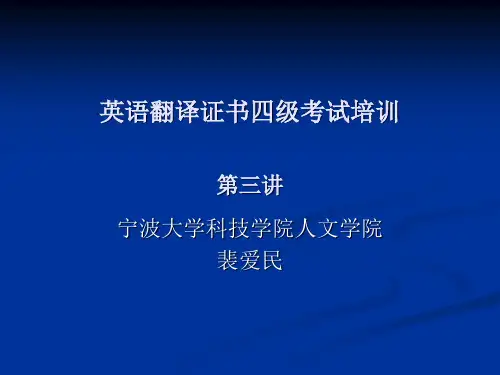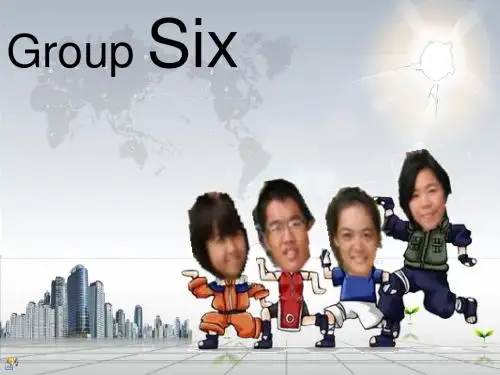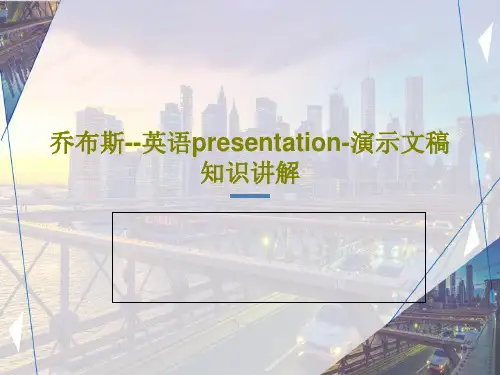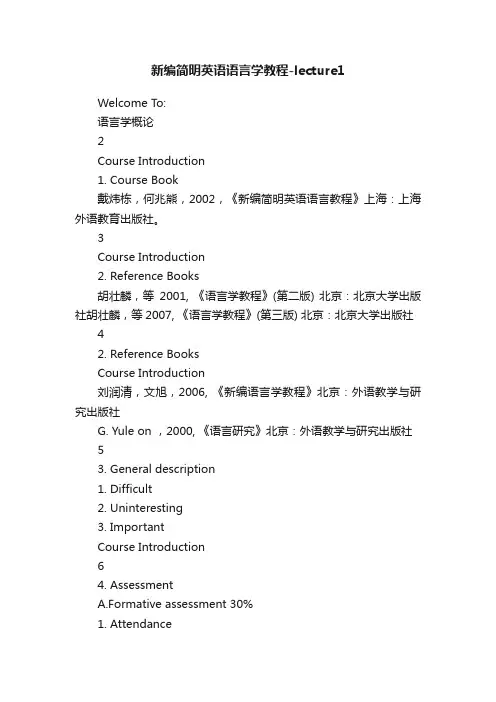Presentation简明教程1.0(朱晨与卢剑刚翻译)
- 格式:pdf
- 大小:898.64 KB
- 文档页数:58





新编简明英语语言学教程-lecture1Welcome T o:语言学概论2Course Introduction1. Course Book戴炜栋,何兆熊,2002,《新编简明英语语言教程》上海:上海外语教育出版社。
3Course Introduction2. Reference Books胡壮麟,等2001, 《语言学教程》(第二版) 北京:北京大学出版社胡壮麟,等2007, 《语言学教程》(第三版) 北京:北京大学出版社42. Reference BooksCourse Introduction刘润清,文旭,2006, 《新编语言学教程》北京:外语教学与研究出版社G. Yule on ,2000, 《语言研究》北京:外语教学与研究出版社53. General description1. Difficult2. Uninteresting3. ImportantCourse Introduction64. AssessmentA.Formative assessment 30%1. Attendance2. Classroom Performance3. HomeworkB. Final Assessment 70%Course Introduction7Chapter 1Introduction81.1 What Is Linguistics?91.1.1Definition of linguisticsLinguistics is the scientific study of language or the science of language ?Object:language in generalMethod:systematic investigation10What is the Significance of Linguistics?思考:1. 一个人如果没有有关某一语言的语言学知识,她/他能够流利地讲这一语言吗??答:可以。